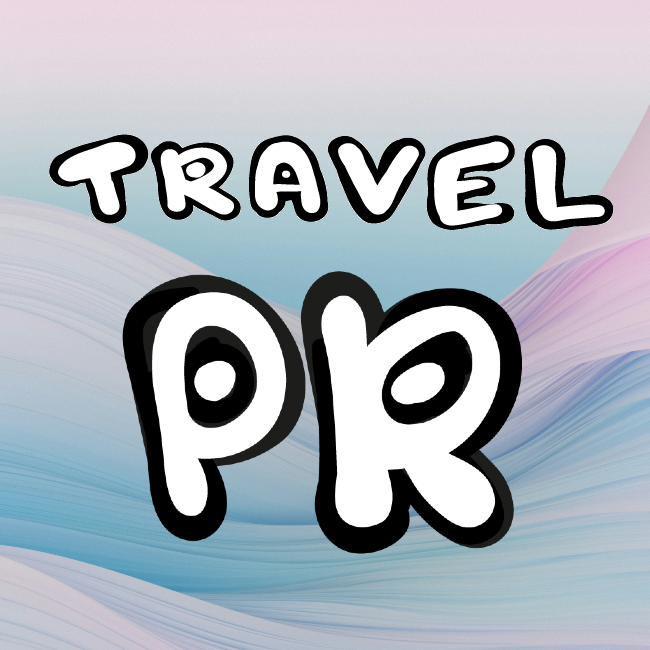Alexandra Launais • August 14, 2025
Micro-cations: A Shift in Travel
- Travel PR Expert Panel

Author: Alexandra Launais
Alexandra is currently a student at the University of California, Santa Barbara, pursuing a degree in communications. She has hands-on experience in social media marketing and administrative coordination and is passionate about branding and storytelling. At PR ON THE GO, she is eager to expand her knowledge of public relations and contribute to this media startup's fashion and travel sectors.
As extravagant getaways plaster social media, the travel industry has seen a rise in the trend of Micro-cations. Microcations are short getaways close to home that allow individuals to travel while navigating time off and high travel costs. Click here to learn more: Allianz Partners U.S. Summer 2025 Vacation Confidence Index.
Many younger individuals are favoring short getaways rather than one large vacation, allowing them to go on multiple trips a year and explore areas around them. These quick escapes allow for unique experiences at boutique stays and local businesses while avoiding the logistics of planning complicated trips. This growing trend opens a window of opportunity for small, local travel businesses, allowing them to showcase distinctive offerings and convenience.
I asked our PR & growth experts: How can travel entrepreneurs position themselves to appeal to travelers looking for local, authentic trips? How can smaller businesses bring visibility and differentiate themselves from larger chains? How effective is a brand's story in highlighting the value and unique aspects of small businesses?
Here are the experts' insights.
- Flexibility and unique packages
- Real, local, and actual care for the people you serve
- A dinner in a family house or a breakfast with craftsperson
- Position yourself as a host rather than a provider of the service
- Curated weekend escapes
- Creating an experience to disconnect
Flexibility and unique packages
Emily Reynolds, Owner at R Public Relations
"Travel entrepreneurs should focus their content on showcasing the value they bring to their customers. Real-world travel vlogs, travel tips and tricks, and BTS content can help travel entrepreneurs get seen and build a following. Showcase your flexibility or any unique packages you have to stand out from larger corporations. And most importantly, tell the story of how you got to where you are today. Whether you were a nomade for a year or grew up traveling the world, consumers want to know what makes you tick."
Real, local, and actual care for the people you serve
Doug Van Soest, Founder at SoCal Home Buyers
"If you’re a small travel business, don’t try to copy what the big companies do. That’s not your strength. Your edge is that you’re real, local and you actually care about the people you serve. You know your area, you know what makes it special and you can offer something genuine that can’t be mass-produced.
You don’t need a polished brand story, just a clear one. Share why you do and who it’s for. Travelers picking a weekend getaway aren’t looking for the fanciest logo. They’re looking for something that feels personal and easy.
In my experience, what sticks with people isn’t how big you are. It’s how you make them feel and how well you understand what they need. That’s how you stand out, and more importantly, how you build real loyalty."
A dinner in a family house or a breakfast with craftsperson
Emily Demirdonder, Director of Operations & Marketing at Proximity Plumbing
"I have observed that the travellers, who are seeking local and authentic experience, are seeking depth in the experience rather than check listing the attractions. I would frame packages on the personal connection e.g. organizing a dinner in a family house or a breakfast with craftsperson who has been doing his job in his trade 40 years. To make every moment associated with the location, such experiences must be overlaid with the cultural and historical background that bigger operators do not think about.
The smaller businesses will be able to attract attention by integrating themselves with the daily routine of the destination. Collaborations with local cafes, markets and galleries have the ability to proliferate a network effect where each partner supports the other. Rather than investing in expensive wide-spread publicity, it develops a referral stream of customers through relational local means. Sporting events such as a small community event like a twilight food market or an art walk can be hosted or sponsored to produce lasting associations with the area.
A successful brand story can best be told by answering the question as to why the business is here and what will be the relation with the place. Telling about the path taken by the founder, the challenges met in the process of getting established, and the individuals involved makes the experience worthwhile. This connection to us can create loyalty that can never be achieved by a chain store."

Pitch your brand to 3,000+ travel journalists. PR ON THE GO provides you with a spreadsheet database of over 3,000 travel editor contacts.
Get the PR ON THE GO Travel Magazines Media List herePosition yourself as a host rather than a provider of the service
Adam Bushell, Director & Electrician at AB Electrical & Communications
"The manner in which small travel companies can distinguish themselves against bigger chains is by concentrating on their human aspect. Efficiency and scale are how large companies are created but a small company can provide something that is far more valuable, a personalized experience. To get an authentic trip, the traveler would want to feel in the company of a local and not a tour guide. The entrepreneur will be able to position himself as a host rather than a provider of the service. The intimately small experience could involve a maximum four people on a tour in the case of a small travel business, something a large chain could never hope to consistently maintain.
A small business entirely depends on the story of the brand. The story of a big chain is connected with its all-over worldwide and its good service. The story of a small business has to be one of individual interest and a true love of what they do. I recall on one of my trips that the tour guide was the owner of the business. He gave us some personal history of his family and the history of the area. It was a real, five hour tour that was more of a chat with a friend than a business transaction. This was a memorable experience. When honesty is used to tell the brand story, the story becomes the essence of the business and brings out the unique features of a small company."
Curated weekend escapes
Arsen Misakyan, Travel Expert & Founder at LAXcar
"Micro-cations, or mini 4-night or less out-of-town getaways, are becoming increasingly mainstream. The first trip of the year will be only two nights or less for 34% of Americans, a 4 percentage point increase from last year; and trips in general are expected to shorten, from an average length of 4.6 nights a year ago to this year's projected 4.2 nights. The growing demand for work-life balance and the escalating financial aspect of travel are contributing to this shift. More than half of U.S. employees are taking micro-cations, such as three- or four-day weekends, instead of the typical weeklong vacation.
On the other hand, one-night stays – where travelers are far more likely to pay a premium, both in terms of the actual rate paid, with an average booking price of $700 per night versus $396 for a week-long stay – are driving leakage as travel buyers continue to prioritize quality and convenience over length. Wealthier Americans are aiding that effort, with 15% of those making $100,000 or more saying they will take three or more vacations this summer despite the economic headwinds.
There is still room for smaller operators, but they need to be authentic and simple – think curated "weekend escapes," farm-to-table experiences, and ready-to-book boutique stays that avoid the process of planning entirely. To boost visibility:
1. Consider yourself as the local expert who can provide insider access to handcrafted itineraries offering something that big brands cannot deliver.
2. Incentivize user-created content and guest tales of experiences.
3. Use targeted ads within a 200-300-mile radius, which captures most micro-cation travelers.
Your brand story matters. This could be something as simple as the founder's ties to the area or a local cultural mission, and in doing so, it speaks uniquely to all who hear it. Travelers who resonate with your story will feel the pull, so alongside their desire to experience, it also transforms into a longing for escape."
Creating an experience to disconnect
Leury Pichardo, Manager at Digital Ceuticals
"My career has been in some pretty cutthroat markets, and the biggest lesson I've learned is this: when everyone else zags, you zig.
The only way small businesses can win the micro cation game is by trashing the traditional vacation playbook. Big hotel chains are all about packed itineraries and a million activities. So, you sell the opposite, you sell the anti itinerary.
It's about creating an experience that gives people permission to do… well, less. To actually disconnect.
Instead of a brochure with a dozen tours? Think a welcome basket with a great novel by a local author. Instead of a map with twenty points of interest? Give them one with just two or three truly special spots and a lot of blank space that encourages them to just wander.
You're not just selling a room anymore. You're selling mental space and for burnt out travelers, that's the real luxury. This approach tells a much better story. It shows you genuinely get why they need a getaway. And look, that’s a unique angle the big chains can’t just copy and paste."
#PRontheGO
Subscribe to the PR ON THE GO newsletter.
Receive the latest media news in your inbox. Discover journalists and start pitching!